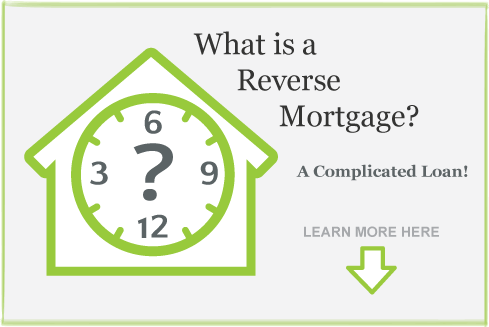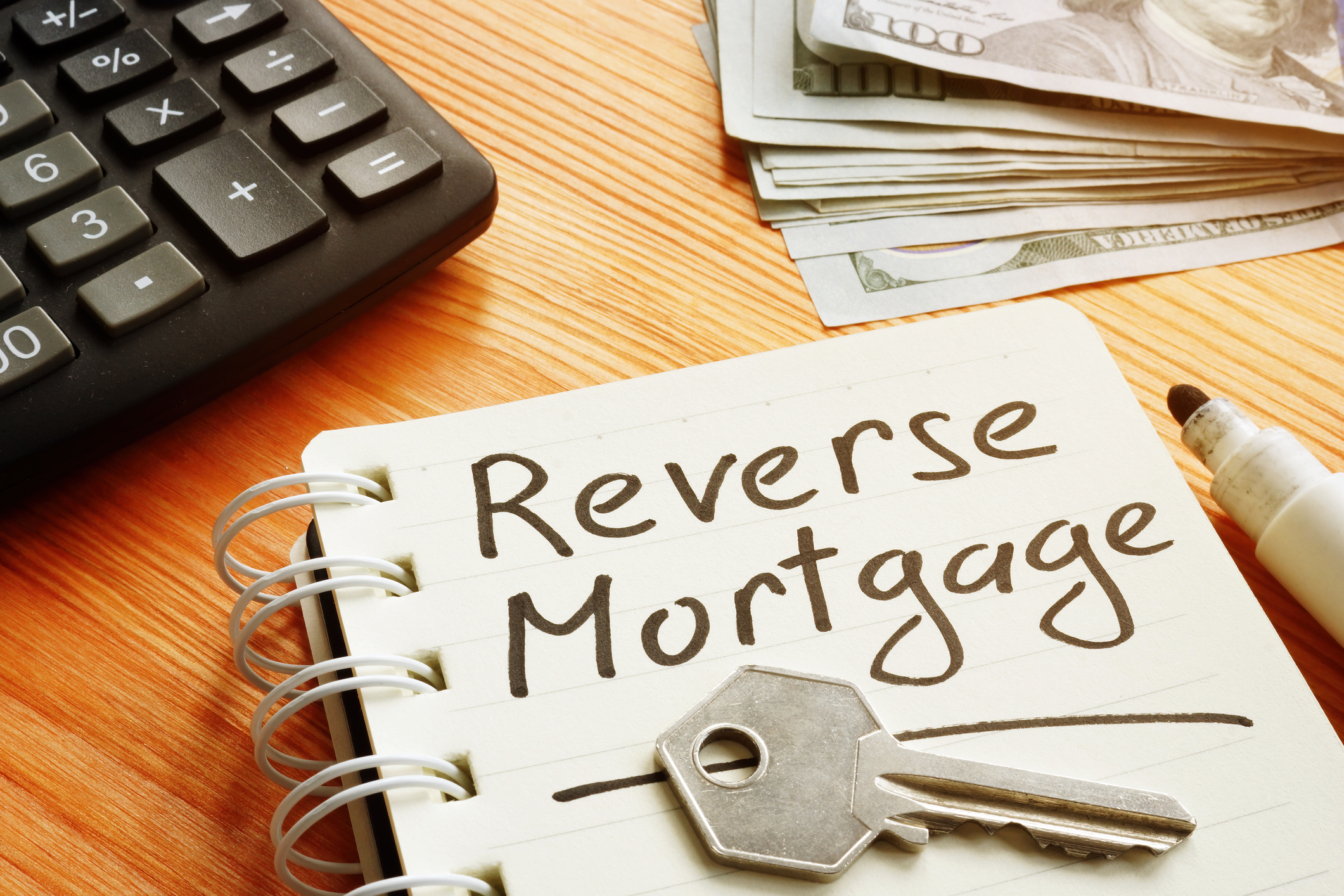Key Factors to Consider Before You Purchase Reverse Mortgage
Key Factors to Consider Before You Purchase Reverse Mortgage
Blog Article
Empower Your Retirement: The Smart Way to Acquisition a Reverse Mortgage
As retirement techniques, many individuals seek efficient approaches to boost their financial self-reliance and wellness. Amongst these approaches, a reverse mortgage emerges as a practical choice for house owners aged 62 and older, permitting them to touch right into their home equity without the need of monthly payments.
Understanding Reverse Home Loans
Comprehending reverse home loans can be vital for home owners looking for monetary flexibility in retired life. A reverse home loan is a monetary item that permits qualified home owners, typically aged 62 and older, to convert a portion of their home equity right into cash money. Unlike typical home mortgages, where consumers make month-to-month repayments to a loan provider, reverse home loans enable homeowners to receive settlements or a round figure while preserving possession of their residential or commercial property.
The amount readily available via a reverse home loan depends upon several variables, consisting of the house owner's age, the home's value, and existing rate of interest. Importantly, the loan does not have actually to be repaid till the house owner sells the home, relocates out, or dies.
It is vital for potential consumers to comprehend the implications of this economic product, consisting of the influence on estate inheritance, tax factors to consider, and ongoing responsibilities associated with residential property maintenance, tax obligations, and insurance. In addition, counseling sessions with accredited specialists are typically required to make sure that borrowers completely understand the terms of the loan. Generally, a comprehensive understanding of reverse home mortgages can empower house owners to make informed choices concerning their financial future in retirement.
Advantages of a Reverse Mortgage
A reverse home loan offers a number of engaging advantages for eligible home owners, specifically those in retired life. This monetary tool permits seniors to convert a part of their home equity right into cash, offering crucial funds without the demand for monthly home loan repayments. The cash obtained can be used for different functions, such as covering clinical expenditures, making home renovations, or supplementing retired life income, thus enhancing general monetary versatility.
One considerable benefit of a reverse home mortgage is that it does not call for settlement till the homeowner moves out, sells the home, or passes away - purchase reverse mortgage. This feature enables retired people to maintain their lifestyle and meet unexpected costs without the burden of monthly settlements. Additionally, the funds received are generally tax-free, allowing property owners to utilize their cash without fear of tax obligation effects
In addition, a reverse home mortgage can supply satisfaction, understanding that it can work as a financial safety net throughout tough times. House owners likewise keep possession of their homes, guaranteeing they can continue living in a familiar setting. Eventually, a reverse home loan can be a tactical funds, equipping retired people to manage their funds successfully while enjoying their golden years.
The Application Refine
Navigating the application procedure for a reverse home mortgage is a crucial action for property owners considering this economic choice. The very first stage includes evaluating qualification, which normally requires the home owner to be at the very least 62 years old, very own the property outright or have a reduced mortgage equilibrium, and occupy the home as their main residence.
As soon as eligibility is verified, homeowners have to undergo a therapy session with a HUD-approved counselor. This session makes sure that they fully comprehend the effects of a reverse home loan, consisting of the responsibilities entailed. purchase reverse mortgage. After completing counseling, candidates can proceed to gather necessary documentation, including evidence of income, possessions, and the home's worth
The following step involves sending an application to a lender, who will Discover More certainly assess the monetary and building qualifications. An evaluation of the home will certainly also be conducted to identify its additional info market price. If approved, the lender will provide loan terms, which ought to be examined meticulously.
Upon approval, the closing process follows, where final files are authorized, and funds are paid out. Recognizing each stage of this application procedure can significantly enhance the property owner's self-confidence and decision-making relating to reverse home mortgages.

Secret Factors To Consider Before Getting
Purchasing a reverse home mortgage is a considerable financial choice that requires mindful consideration of numerous crucial aspects. Reviewing your monetary demands and goals is just as crucial; determine whether a reverse home loan aligns with your long-lasting strategies.

Furthermore, evaluate the effect on your present way of living. A reverse home mortgage can influence your eligibility for certain government benefits, such as Medicaid. Look for professional assistance. Consulting with a monetary expert or a real estate counselor can offer beneficial insights tailored to your specific scenarios. By completely examining these factors to consider, you can make an extra informed choice concerning whether a try this website reverse home mortgage is the appropriate economic method for your retirement.
Making the Many of Your Funds
Once you have actually safeguarded a reverse home mortgage, effectively handling the funds ends up being a priority. The adaptability of a reverse home loan enables house owners to make use of the funds in numerous means, but tactical planning is important to optimize their advantages.
One key approach is to create a budget plan that describes your monthly expenses and economic goals. By identifying essential expenditures such as healthcare, home tax obligations, and home maintenance, you can allot funds appropriately to ensure long-lasting sustainability. Additionally, think about making use of a part of the funds for financial investments that can generate revenue or appreciate gradually, such as common funds or dividend-paying stocks.
One more vital aspect is to preserve an emergency situation fund. Setting apart a reserve from your reverse home loan can aid cover unexpected expenses, giving comfort and monetary security. In addition, seek advice from a monetary consultant to discover feasible tax obligation implications and exactly how to incorporate reverse home mortgage funds right into your overall retirement method.
Ultimately, prudent administration of reverse home loan funds can improve your economic security, allowing you to enjoy your retirement years without the stress of financial uncertainty. Careful planning and informed decision-making will ensure that your funds work effectively for you.
Conclusion
In conclusion, a reverse mortgage presents a viable financial strategy for elders looking for to improve their retired life experience. By converting home equity into accessible funds, people can resolve important expenditures and protected additional financial sources without incurring month-to-month repayments. Mindful factor to consider of the connected terms and implications is necessary to optimize benefits. Inevitably, leveraging this monetary tool can promote higher independence and boost overall top quality of life throughout retirement years.
Understanding reverse home loans can be crucial for house owners looking for monetary adaptability in retirement. A reverse home loan is an economic product that enables qualified property owners, commonly aged 62 and older, to convert a part of their home equity right into cash. Unlike conventional home mortgages, where borrowers make regular monthly settlements to a lender, reverse mortgages allow home owners to receive payments or a lump amount while preserving ownership of their residential property.
Generally, a detailed understanding of reverse mortgages can empower homeowners to make informed decisions about their financial future in retired life.
Seek advice from with an economic expert to discover feasible tax ramifications and how to incorporate reverse home mortgage funds right into your general retired life strategy.
Report this page